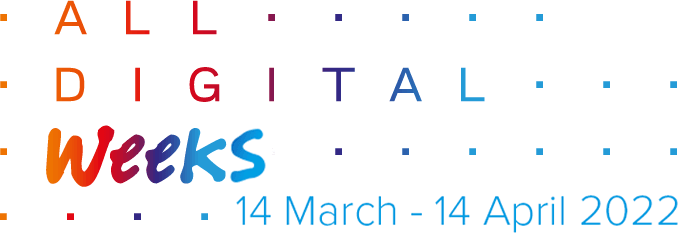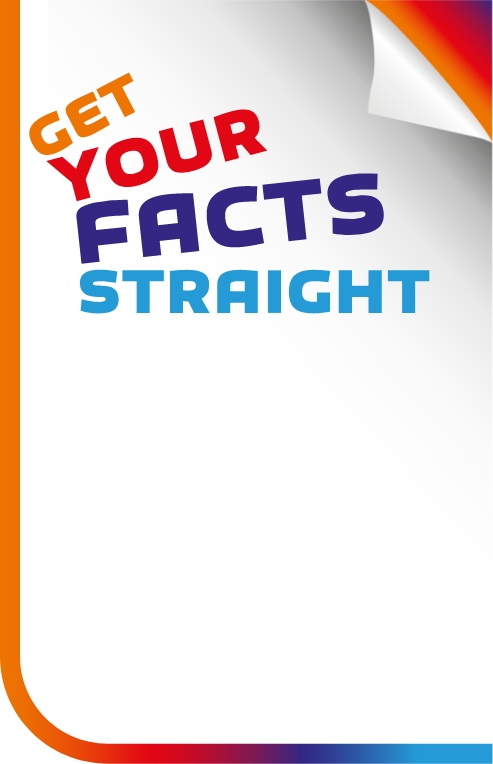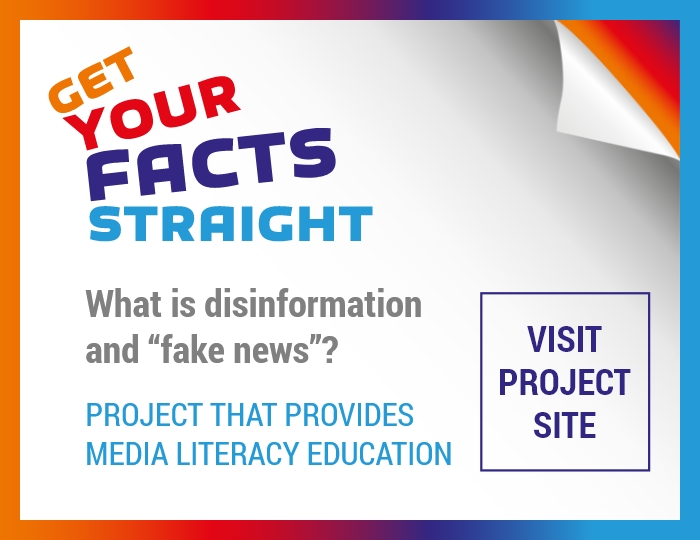Brussels, BELGIUM | 17 APRIL 2013
Nearly half of the European labour force (47%) [1] is not confident their computer and internet skills are sufficient in today’s labour market, while the demand for employees with ICT skills is growing considerably, by around 3% a year [2]. By 2015, 900.000 ICT job vacancies are forecasted to remain unfilled [3].
The Europe-wide Get Online Week campaign, organized in 26 countries between 18 and 24 March 2013, highlighted the essential role ICT skills play in today’s society and focused on encouraging young people to take up a career in ICT.
The Get Online Week campaign was organized for the fourth time by Telecentre-Europe, a Pan-European Association that represents 37 local network organizations operating across 27 countries and supported by the Get Online Week Alliance – formed by Accenture, Liberty Global and Microsoft.
 Youth unemployment in the EU27 is higher than 20% [4], while the unmet demand for e-skills will be high in 2015, at a level that will be as much as double the number of qualified graduates [5]. That’s why the campaign this year focused on youth, especially on how to direct more young people into digital qualifications and jobs.
Youth unemployment in the EU27 is higher than 20% [4], while the unmet demand for e-skills will be high in 2015, at a level that will be as much as double the number of qualified graduates [5]. That’s why the campaign this year focused on youth, especially on how to direct more young people into digital qualifications and jobs.
In the field, 26 national Get Online Week campaign partners joined efforts with ICT companies and public authorities and organized a range of activities in both the urban and rural areas of their countries to empower people to use technologies for better jobs and better lives.
Mara Jakobsone, Chair of Telecentre-Europe explains: “Thanks to Get Online Week 2013 and its astonishing outcomes, in just one week European telecentres operating in learning centres, libraries, and schools have changed the lives of so many people and proved once more why they are at the frontline of digital empowerment and inclusion. The campaign actually reflected what happens every week in the centres, and that is something we are all very proud of.”
 The Get Online Week 2013 mini-survey was an important tool to capture the campaign participants but also to better understand their online behaviours. The tool was developed pro bono by Accenture through its ‘Skills to Succeed‘ global corporate citizenship initiative, and provided live online data on how Europeans were getting engaged through the campaign activities across Europe.
The Get Online Week 2013 mini-survey was an important tool to capture the campaign participants but also to better understand their online behaviours. The tool was developed pro bono by Accenture through its ‘Skills to Succeed‘ global corporate citizenship initiative, and provided live online data on how Europeans were getting engaged through the campaign activities across Europe.
Laurentiu Bunescu, Get Online Week’s Campaign Manager recaps the results of the mini-survey: “From all the employed respondents, only 11% do not apply digital technologies to their job tasks. From those that are unemployed, a significant percentage of 35% do not use the internet for job search yet. And 23% of the retired group used the computer for the first time this week!”
 Telecentres also promoted Skillage during the campaign, a tool especially designed for young people that helps them understand their ICT skills and the skills that are needed for the job market. “Young people aged under 24 formed two thirds of the respondents of this test and their average score came to 54.5%. This confirms the existing mismatch between the digital skills young people possess and those asked for at the workplace.” says Gabriel Rissola, Managing Director of Telecentre-Europe.
Telecentres also promoted Skillage during the campaign, a tool especially designed for young people that helps them understand their ICT skills and the skills that are needed for the job market. “Young people aged under 24 formed two thirds of the respondents of this test and their average score came to 54.5%. This confirms the existing mismatch between the digital skills young people possess and those asked for at the workplace.” says Gabriel Rissola, Managing Director of Telecentre-Europe.
Another set of activities was aimed at encouraging young people, and especially girls, to take up a career in ICT, informing them about certification schemes that can recognize their informally acquired skills. As a result, over 200 youngsters from all over Europe registered for one of the free vouchers donated by Microsoft and redeemable for the Microsoft Technology Associate certification exam.
 In Spain, a virtual exhibition exposed info-graphics of 8 newly emerging professions and a live web-streaming called ‘Dialogues for employment‘ broadcasted interviews with Spanish personalities about young people, employment 2.0 and entrepreneurship. In Latvia, IT companies offered students more than 230 vacancies at ‘ICT Career Day‘ and a National Coalition of e-skills for economic growth, jobs and personal development was formed. In Belgium, 6 women soon-to-be-webmasters showed their skills during a ‘Web Marathon’ and created websites in just 1 day for 6 women entrepreneurs. In Italy, 2.000 youngsters aged 6-19 came together for the ‘RomeCup’, an annual event that promotes robotics as a didactic instrument to approach young people to technology, ICT, innovation & entrepreneurship.
In Spain, a virtual exhibition exposed info-graphics of 8 newly emerging professions and a live web-streaming called ‘Dialogues for employment‘ broadcasted interviews with Spanish personalities about young people, employment 2.0 and entrepreneurship. In Latvia, IT companies offered students more than 230 vacancies at ‘ICT Career Day‘ and a National Coalition of e-skills for economic growth, jobs and personal development was formed. In Belgium, 6 women soon-to-be-webmasters showed their skills during a ‘Web Marathon’ and created websites in just 1 day for 6 women entrepreneurs. In Italy, 2.000 youngsters aged 6-19 came together for the ‘RomeCup’, an annual event that promotes robotics as a didactic instrument to approach young people to technology, ICT, innovation & entrepreneurship.
Get Online Week 2013 also empowered youth by building upon their knowledge to use technology to further develop their personal and professional lives and to develop a secure and responsible digital identity, as this is becoming increasingly important for young people when applying for universities or jobs. Telecentre-Europe’s Employment Toolkit and Liberty Global’s educational handbook The Web We Want have been widely disseminated by the European telecentres to facilitate the above mentioned effort.
In Belarus, high school students received classes on the use of different internet services. In Lithuania, a full day of ‘Safer Internet’ seminars took place for child care workers and foster home staff. In Serbia, primary school pupils helped their pre-school friends to safely use internet. In Macedonia, teachers at different educational institutions held the lecture “Internet, its benefits & risks”.
In 2012, 23% of European individuals aged 16-74 have never used the internet [6]. That’s why, next to its focus on youth and on up-skilling and re-skilling people, Get Online Week 2013 still aimed at helping more people to go digital. Bringing new people online was the focus of activities in countries like Romania, Bulgaria, Russia & Poland, where over 30% of the age group has never been on the internet. But also in Sweden, Denmark and the Netherlands who are head of the class with around 80% of the age group daily on the internet, lots of activities were held in libraries and data lounges to give a chance to those who are not yet online to integrate IT into their daily life and into their contacts with the authorities.
[2] Towards european e-skills quality labels for ict industry training and certifications, p4 & p6
[3] ‘Grand Coalition’ must fill the gap of 900.000 ICT vacancies
[4] Infographic of the European Youth Forum, based on Eurostat statistics from July 2012
[5] Towards european e-skills quality labels for ict industry training and certifications, p4 & p11
[6] Internet use in households and by individuals 2012 – Eurostat, p5
Notes for the Editor
Get Online Week is a European wide campaign run by Telecentre-Europe and the Get Online Week Alliance, engaging and empowering people to use technology and the internet with confidence and skills that allow them to benefit from the online world of opportunities.
The Get Online Week Alliance is a group formed by Accenture, Liberty Global and Microsoft, supporting and contributing to the Get Online Week 2013 campaign.
Telecentre-Europe AISBL is a not for profit international Association based in Belgium. It provides inclusive support to the vibrant network of ICT learning centres (also known as “telecentres”) in NGOs, libraries, municipalities & education venues all across Europe, to increase their impact and effectiveness and by fostering knowledge sharing & learning amongst its members. There are an estimated 20.000 centres within the network, all publicly accessible places where people can get help to access computers, the internet and other digital technologies that enable them to gather information, create, learn, and communicate with others.
For more information visit www.getonlineweek.eu and www.telecentre-europe.org or contact Laurentiu Bunescu – laurentiu.bunescu@telecentre-europe.org
























